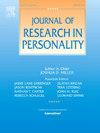代理人集体自恋和社区集体自恋:它们能预测与 COVID-19 大流行相关的信念和行为吗?
IF 3.1
2区 心理学
Q2 PSYCHOLOGY, SOCIAL
引用次数: 0
摘要
在一项多国研究(61 个国家;N = 15,039)中,我们考察了集体自恋者(包括代理自恋者(ACN)和社区自恋者(CCN))是如何在认知上(通过认可毫无根据的阴谋和健康信念)和行为上(通过预防、囤积和亲社会行为)对大流行病做出反应的。较高的 ACN 和 CCN 预测了对 COVID-19 毫无根据的信念的认可程度,以及最近参与与大流行病相关的预防、囤积和亲社会行为的可能性。ACN 和 CCN 的预测效应是独立的,这表明它们具有可分性。恐惧对毫无根据的信念和行为的认可有积极的预测作用,但当 ACN 和 CCN 特别高时,这种关系的斜率趋于平缓。最后,在集体恐惧程度不同的国家,ACN 或 CCN 与结果之间的关系也发生了变化。本文章由计算机程序翻译,如有差异,请以英文原文为准。
Agentic collective narcissism and communal collective narcissism: Do they predict COVID-19 pandemic-related beliefs and behaviors?
In a multinational study (61 countries; N = 15,039), we examined how collective narcissists, both agentic (ACN) and communal (CCN), reacted cognitively (through endorsement of unfounded conspiracy and health beliefs) and behaviorally (via prevention, hoarding, and prosociality) to the pandemic. Higher ACN and CCN predicted greater endorsement of COVID-19 unfounded beliefs and higher likelihood of having recently engaged in pandemic-related prevention, hoarding, and prosociality. The predictive effects of ACN and CCN were independent, suggesting construct separability. Fear positively predicted endorsement of unfounded beliefs and behaviors, but the slope of that relation was flattened when ACN and CCN were particularly high. Finally, the relation between ACN or CCN and outcomes changed across countries varying in collective fear.
求助全文
通过发布文献求助,成功后即可免费获取论文全文。
去求助
来源期刊

Journal of Research in Personality
PSYCHOLOGY, SOCIAL-
CiteScore
5.40
自引率
6.10%
发文量
102
审稿时长
67 days
期刊介绍:
Emphasizing experimental and descriptive research, the Journal of Research in Personality presents articles that examine important issues in the field of personality and in related fields basic to the understanding of personality. The subject matter includes treatments of genetic, physiological, motivational, learning, perceptual, cognitive, and social processes of both normal and abnormal kinds in human and animal subjects. Features: • Papers that present integrated sets of studies that address significant theoretical issues relating to personality. • Theoretical papers and critical reviews of current experimental and methodological interest. • Single, well-designed studies of an innovative nature. • Brief reports, including replication or null result studies of previously reported findings, or a well-designed studies addressing questions of limited scope.
 求助内容:
求助内容: 应助结果提醒方式:
应助结果提醒方式:


